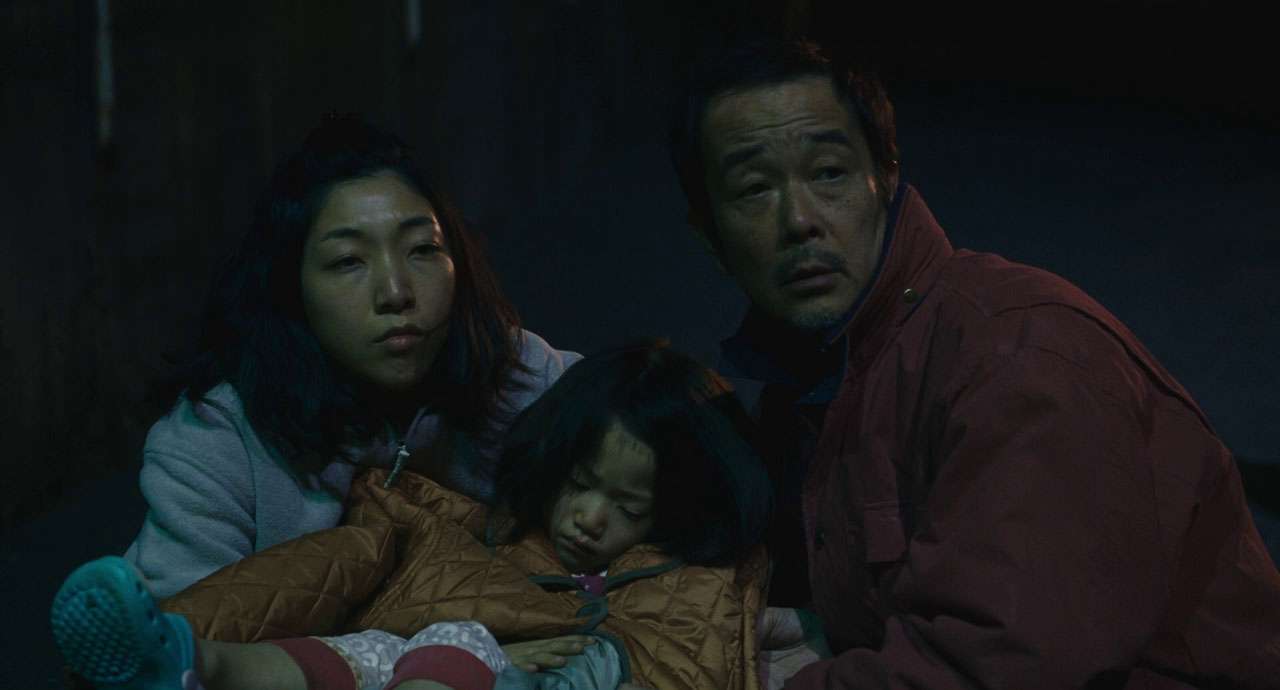After slightly diverting from his comfort zone by delivering a slow-burning thriller in 2017, the Japanese master of familial dramas is back with Shoplifters. Soothing, understated and so emotionally moving that you wouldn’t even notice when tears stream down your face, the newest film by Hirokazu Kore-eda is a humanist masterpiece.
Having explored how true fatherhood doesn’t just involve a blood relation in his 2013 film “Like Father Like Son”, Kore-eda takes up the tough job of humanizing a bunch of misfit thieves by questioning the very essence of what makes a family. In doing so, he dwells his naturalistic, heart-warming narrative structure in one of his finest, most deceptive, and heartbreakingly bleak stories about what binds people together. Treading miles away from the light-hearted dramatic heft of “After the Storm” and “Our Little Sister”, Kore-eda’s Shoplifters is probably his most honest film since 2008’s elegiac masterpiece: “Still Walking.”
The film revolves around The Shibatas household and the people who inherently or incidentally live in it. The scrimmage that is left lying around the house seems to take up more space than the people who live in it but there is an overabundance of love and laughter that fills up the left-out space. There is a sense of generosity, a familial understanding, moody mishaps, and a whole lot of Japanese cuisine that keep the Shibatas together.
Also at MAMI: Border (2018) ‘MAMI’ Review: A Grim Scandinavian Folktale
In short, even with its unusually uncomprehensible air, the place feels like home to all the people who live in it. Also while none of them are connected to each other by blood, a sensory feeling of being abandoned brings them closer to one another. They don’t just share their food, and their living space but also their scars that have a deeply inflicted wound that rings their past together while providing the courage to start anew.
The film opens with Osamu and Shota performing what seems like a daily ritual at the local supermarket. Shota, who is only a child basks in the glory of lifting off their wholesome needs from the shelf and slowly pushing them down into his bag while Osamu amusingly covers him up. They later run down the street to their favorite food stall only to find the petite, hungry, and abandoned 5-year-old girl Juri (Sasaki Miyu) quietly sitting on the porch while the cold strikes hard. They both decide to bring her home and Nobuyo who practically runs the entire household decides to keep her in after seeing how she has been a victim of some domestic violence herself.
“It’s really not kidnapping until we ask for a ransom,” one of them announces as they decide to give the little girl a makeover and keep her with them. Also in the mix are Aki (Matsuoka Mayu), Nobuyo’s younger sister and the grandmother of them all Hatsue (played by the late Kirin Kiki) whose pension seems to practically run the household apart from their marginally employed self. All the characters in this tale seem to have a past that only their shattered, demographically misplaced identity seems to represent. They don’t really indulge themselves in dwelling on the past and live each day counting their deeds and the money they can afford to fill up their belly.
Also Read: Jonaki (2018) ‘MAMI’ Review: An exploration of dreams
In its most gentle moments, Kore-eda binds you to this series of characters whose actions are never morally right. But he smithers their livelihood into his traditionally naturalistic tendencies so seamlessly that you are bound to get deeply connected to them. For instance, when we see Osamu wishing that Shota treats him like his dad and calls him so, we automatically want him to do so despite knowing that Osamu is the actual reason why Shota has resorted to stealing things. The film never forcefully provides these criminal offenders with a moral high ground and lets them gleefully achieve it on their own.
The film is about what makes and breaks a family. What devises them with the feeling of being together and how often do they act like family in the general sense of things. Shoplifters, in more frames than one, is a really bleak examination of the morality that lies between loving people and the ecstasy of allowing them to be a part of your own life.
The film works because it seeps down these characters into your brain and makes you remember every action that they take. None of which are governed by the selfish nature that a person is usually born with. Their selfishness, however, comes as a cumulative whole for all the people who inherit the Shibatas household. Kore-eda spends ample time fumigating troubles at the bay only to bring them in when characters are naturally off-guard. By the time Nobuyo delivers her final monologue, the audience is left with a sprawling range of emotionally conflicting feelings that reel on them till the credits roll.
This is Kore-eda at his most realistically best. Filled with a compassionate, profound, and intelligent narrative that never leaves you for a second, Shoplifters is the best film of the year and a perfect swan song to Kirin Kiki who ‘literally’ gets buried in a Kore-eda household.





![The Silence [2017] Netflix: A Realistic Drama](https://79468c92.delivery.rocketcdn.me/wp-content/uploads/2017/10/the_silence_anjali_profile-_h_2015-768x433.jpg)

![Fires on the Plain [1959] Review – A Potently Realistic Vision of War’s Devastating Impact on the Human Soul](https://79468c92.delivery.rocketcdn.me/wp-content/uploads/2020/07/Fires-on-the-Plain-1959-768x537.jpg)

![Mangsho [2020] Short Film Review: Raw, Unpleasing and Unforgiving](https://79468c92.delivery.rocketcdn.me/wp-content/uploads/2020/05/Mangsho-768x370.png)